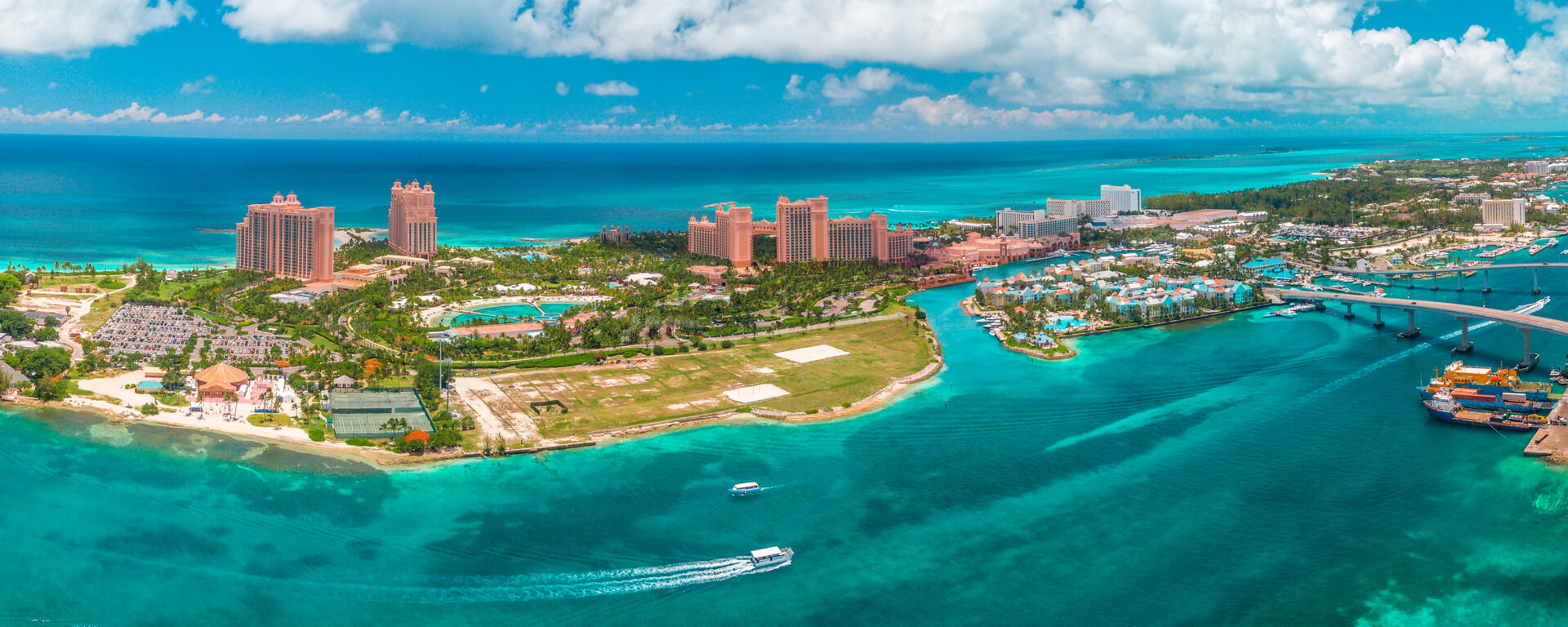Language Barrier in The Bahamas
The Bahamas, being part of the British Commonwealth and having the Queen as their head of state, has English as their formal language. However, locals tend to speak Bahamian Creole, which is a distinct vernacular of British English. This may take some getting used to when you first arrive in The Bahamas.
Weather in The Bahamas
With only one instance of snow in the air ever reported in 1977, The Bahamas has a warm, tropical climate that rarely drops below 20°C year-round. On average, the islands experience 340 days of sun a year.
However, its tropical location does make it occasionally prone to severe hurricanes. In 2019, Hurricane Dorian devastated the northern islands, with 1,300 people still missing today.
The tropical climate also means that the summer signifies rainy months and winter brings dry spells complemented by warmer weather.
British Representation in The Bahamas
There is no permanent consular representation at the High Commission in Nassau, instead all consular work is sent via the British High Commission in Kingston, Jamaica.
In an emergency, which does not include passport or visa queries, you should ring +1 242 225 6033 (select ‘2’) or +1 876 936 0700.
While in The Bahamas you can access UK Government services, which are listed here.
Emergency Services in The Bahamas
| Contact Number | |
| All Emergencies | 911/ 919 |
Health and Medical Care in The Bahamas
In recent years, thanks to heavy investment from the Bahamian government, health care and hospital provision has increased across the country. All Bahamians and those with citizenship are entitled to receive free healthcare, but this doesn’t apply to expats. You will need specific expat healthcare insurance to cover you while abroad or you will be out of pocket for any medical expenses incurred. As most ambulance transport is done via air ambulance, this will need to be considered in your insurance.
Health insurance is covered by employers, but if you are not expatriating for work reasons, you will need to purchase private health insurance.
Vaccinations
For some people, a yellow fever vaccination certificate may be required to enter the country. You should check with the National Travel Health Network and Centre before you travel to find out whether you need one.
All travellers to The Bahamas should be up to date with routine vaccinations as is. Particular attention should be paid to the Tetanus vaccination as this is recommended for most travellers.
For some travellers, having a Hepatitis A&B vaccination may be required and also a rabies vaccination.
Endemics and Viruses
The Bahamas has a risk of the following viruses and endemics:
- Bites from insects causing diseases such as West Nile virus
- Dengue fever is endemic to The Bahamas, and is transmitted via mosquitoes
- As a tropical country, seasonal flu can occur throughout the year. At-risk individuals should consider having a top-up vaccination before travel
Zika virus is transmitted by mosquitoes, and there is a known risk of Zika in The Bahamas. Pregnant women in particular should take care.
Driving in The Bahamas
Traffic drives on the left-hand side of the road but as most cars are imported from America, they are left-hand drive, making it potentially risky and more tricky to get used to. Outside of city centres, roads can be dirt tracks and harder to navigate. In city centres and built-up areas, congestion can get bad quickly.
As The Bahamas is a group of islands, getting your car between islands may not always be possible. There is a toll bridge connecting Nassau and Paradise Island and the toll fare is $2.
To drive in The Bahamas, you’ll need insurance and a licence. Any vehicle imported will also need registering and certifying before it can be used on the roads.
Getting Your Driving Licence in The Bahamas
When living in The Bahamas, getting your driving licence is tricky unless you have a permit to reside that must be issued by The Bahamas Immigration Department.
You must have passed a theory test and a practical test before applying for a licence, and you must renew your licence after one year. After that, it must be renewed every three years.
Legal Requirements when Driving in The Bahamas
Driving laws are stricter in city centres, with 25mph speed limits and mobile speed trap cameras around. Parking is also more regulated, especially in Nassau and Freeport. Outside of these two places, it’s much more of a free for all when it comes to parking.
You must be 17 to drive and 21 to rent a car. The highway code is available for reading, and contains nuances around local laws.


